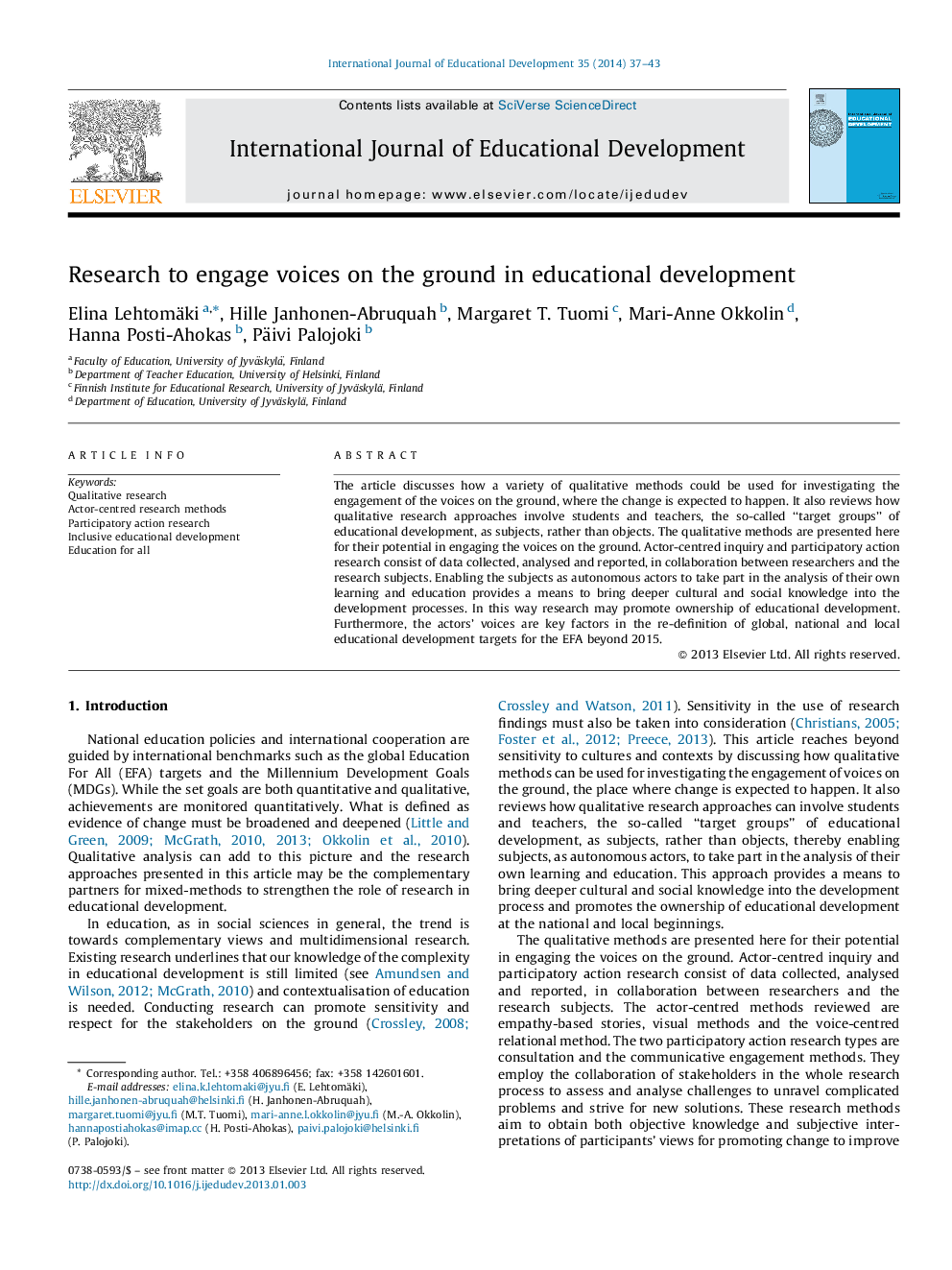| Article ID | Journal | Published Year | Pages | File Type |
|---|---|---|---|---|
| 356173 | International Journal of Educational Development | 2014 | 7 Pages |
The article discusses how a variety of qualitative methods could be used for investigating the engagement of the voices on the ground, where the change is expected to happen. It also reviews how qualitative research approaches involve students and teachers, the so-called “target groups” of educational development, as subjects, rather than objects. The qualitative methods are presented here for their potential in engaging the voices on the ground. Actor-centred inquiry and participatory action research consist of data collected, analysed and reported, in collaboration between researchers and the research subjects. Enabling the subjects as autonomous actors to take part in the analysis of their own learning and education provides a means to bring deeper cultural and social knowledge into the development processes. In this way research may promote ownership of educational development. Furthermore, the actors’ voices are key factors in the re-definition of global, national and local educational development targets for the EFA beyond 2015.
► Actor-centred and participatory action research enables dialogue for development. ► Engaging target groups of EFA and MDGs in dialogue increases ownership. ► Cultural and social knowledge enhances educational development processes. ► The actors’ voices re-define development targets for the EFA beyond 2015.
